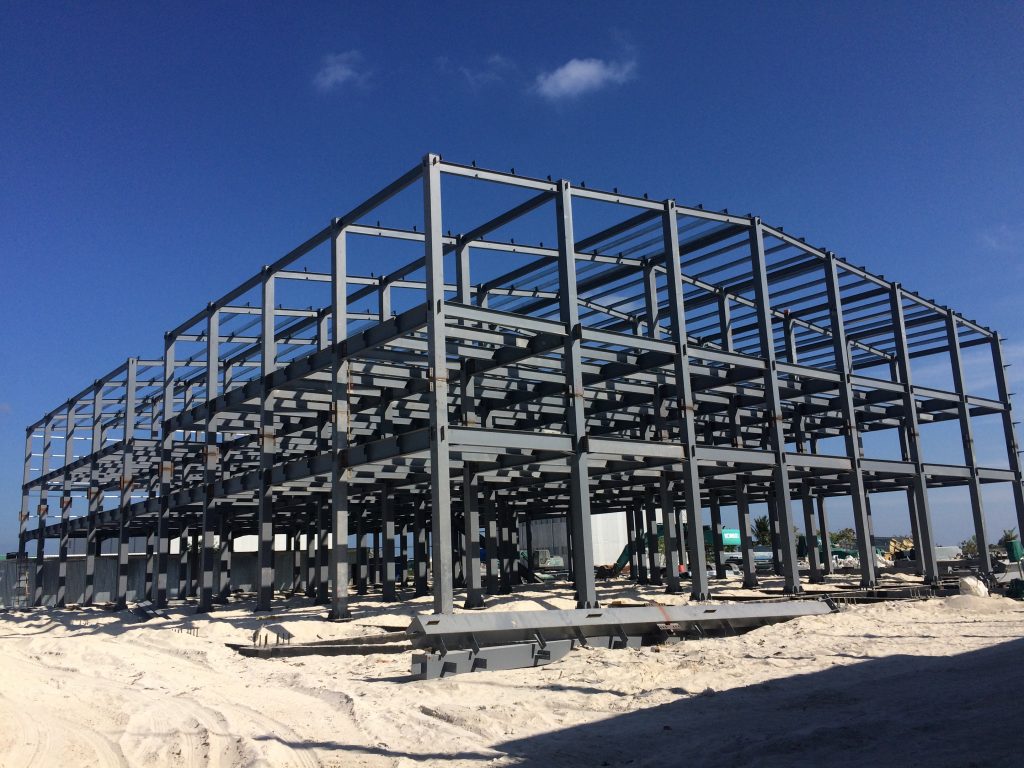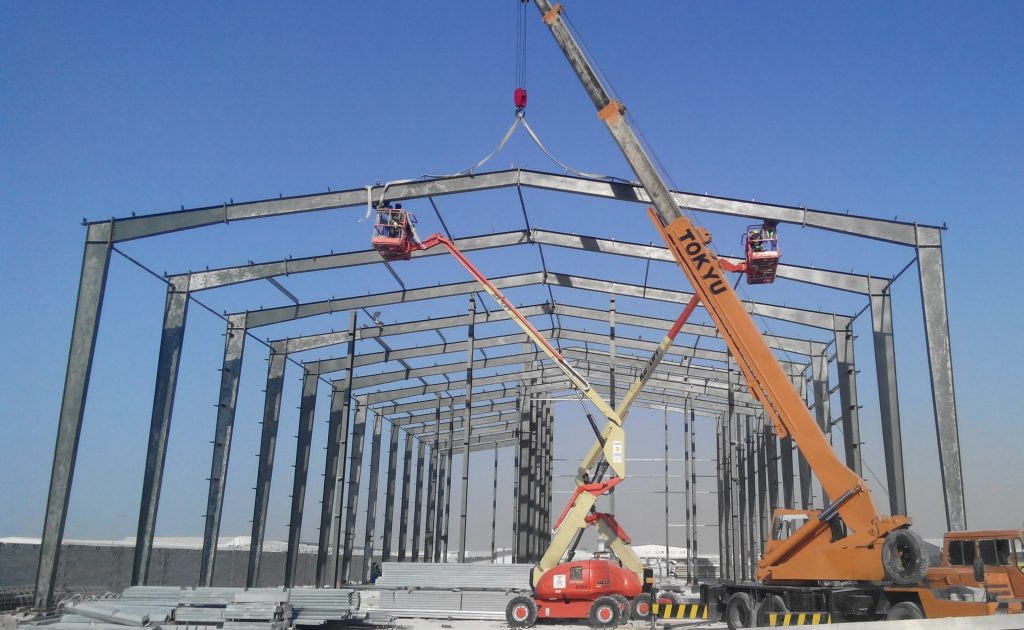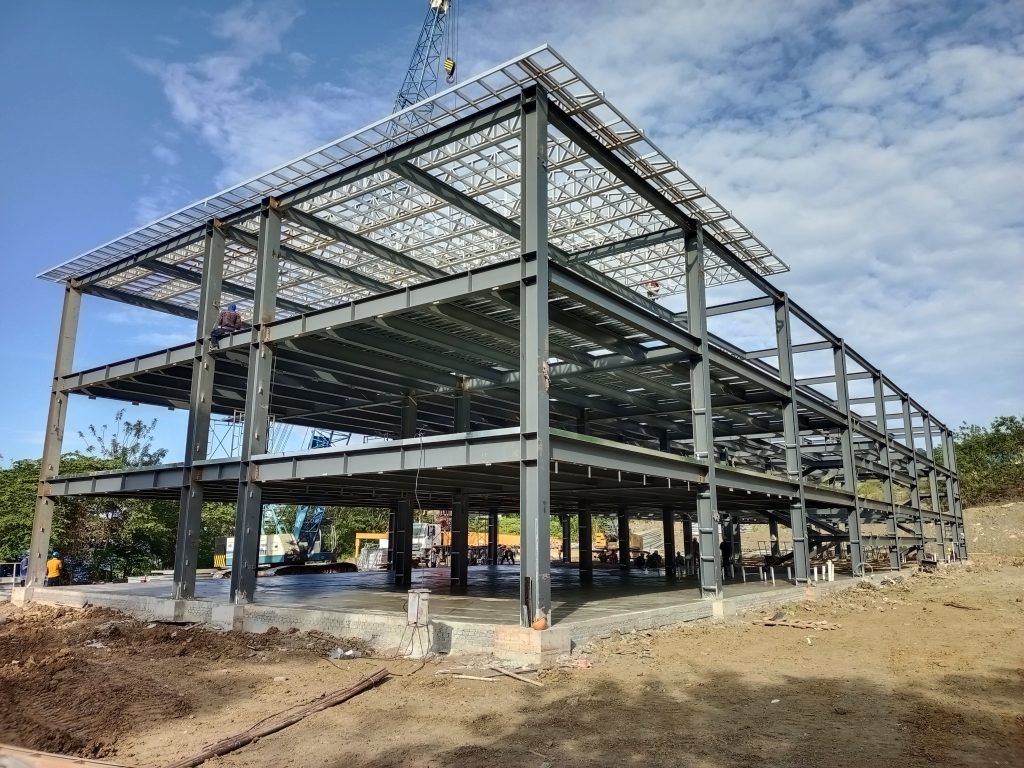Introduction
As agricultural operations diversify, maximizing value from farm infrastructure grows imperative. Multi-functional buildings suitable for varied sequential uses offer clear advantages over purpose-built single-use structures. However, retrofitting existing buildings or constructing new specialized facilities demands sizable capital outlays inhibiting such flexibility. To address this challenge, researchers collaborated with Lida Group to test prototype multi-use farms structures employing reusable steel framing and cladding systems. This paper analyzes durability testing and whole-lifecycle cost-modeling of various prototype designs. Findings provide insight toward optimized reusable building solutions empowering evolutionary farming practices.
Prototype Designs
Researchers oversaw fabrication and installation and three replicated 300m2 prototypes adaptable to livestock housing, equipment storage, crop processing, and more:
Prototype 1: Hot-dip galvanized bolted steel frame and façade
Prototype 2: Bolted light gauge steel framework with insulated sandwich panels
Prototype 3: Modular tubular steel sub-assemblies joined with quick-lock connections

All utilized galvanized/coated materials, vapor/air tight enclosures, and strategically located plumbing/electrical utilities to facilitate sanitization and multi-functional retrofitting with minimal renovation.
Durability Testing
Samples of each prototype underwent accelerated simulation of 15-year environmental exposure:
– Cyclic Pressure Testing: Withstood wind uplift, precipitation, and temperature fluctuations emulating 10 North American winters.
– Salt Spray Exposure: Subjected to 5,000 hour salt corrosion per ASTM B117 standards with no deterioration.
– Impact/Abrasion Resistance: Sand/gravel bombardment emulating hailstone impacts showed panels and connections withstood equivalent of 30 years of weather without damage.

Whole-Lifecycle Cost Analysis
Accountants modeled projected capital expenditures, operational costs, energy usage, and residual value over 30-year lifecycles comparing the three prototype designs to traditional single-use construction:
– Prototypes 1 & 2 afforded 15-20% lower initial costs versus wood or masonry facilities through standardization and prefabrication.
– Reusability yielded 100-200% returns on investment over multiple sequential uses as a chicken broiler barn, equipment shelter, and potato processing plant.
– Modular connections of Prototype 3 enabled most versatile and affordable transformations with only labor involved.
Key Findings
Accelerated durability testing proved all prototype designs exceed performance of typical farm buildings, validating suitability for sequential multi-use applications. Prototype 3 modular tubular steel framing combined with quick-connection cladding panels emerged as the most cost-effective and adaptable long-term solution. Whole-lifecycle savings exceeded 30% versus single-use structures through capitalized reusability and minimized retrofitting costs.

Deployment Potential
Based on the successes, researchers project rollout of the reusable building system across various agricultural applications including:
– Mixed livestock and crop operations requiring seasonal housing, storage, packing/cooling facilities
– Centralized infrastructure supporting cooperatives or indigenous community farms
– Expandable starter barns evolving with young producer operations
– Temporary processing facilities for value-added opportunities
– Modular mobile structures for grazing, fieldwork, and disaster relief
Commercialization
Lida will leverage the proven reusable building system concept through optimized modular standardized componentry. Turnkey package will include engineered connector hardware, flexible interior fixtures, and support documentation. Streamlined configuration and retrofitting consultations aim to further reduce costs and labor requirements. Target early adopters include universities, investor groups, and regional economic development initiatives. Researchers conclude the system offers a sustainable, evolutionary solution empowering diversified agricultural enterprise.

Conclusion
This research validated a reusable modular steel building system utilizing Lida Group’s technology achieves superior durability and whole-lifecycle cost-effectiveness compared to single-use construction. Ability to strategically retrofit multi-functional spaces unlock untapped potential for farms and offers resilience against market fluctuations. Looking ahead, further innovation and broad deployment hold potential to support sustainable intensification and rural economic development through empowering evolutionary mixed-use agricultural infrastructure practices.

Related news
-
Technical paper analyzes the wind and weather resilience, structural longevity, and affordability of Lida Group's proprietary steel connections applied to economic farm warehouses and covered work areas.
2024-07-25 17:51:31
-
Report examines the standardized prefabricated building methods utilized by Lida Group to provide durable non-residential structures supporting remote agricultural communities and businesses.
2024-07-25 18:12:37
-
Researchers commend Lida Group's ability to provide cost-effective temporary non-residential buildings supporting rapid disaster recovery or pop-up agricultural activities through relocatable steel structures.
2024-07-24 17:22:37
contact us
- Tel: +86-532-88966982
- Whatsapp: +86-13793209022
- E-mail: sales@lidajituan.com


